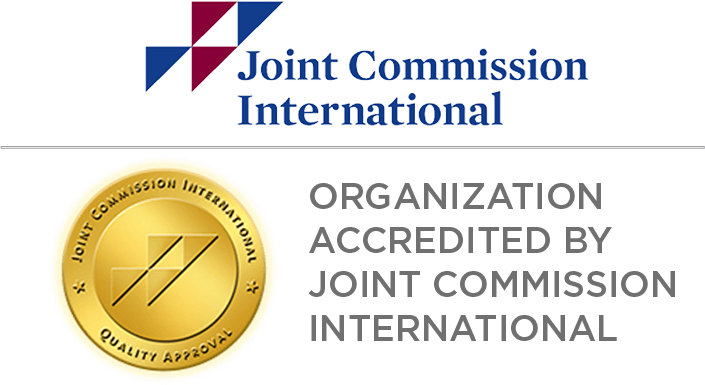The importance of pre-operative ECG testing for hair transplant patients
– based on the experience of one of our experts at Hair Restoration Blackrock, Dublin
Today, FUT surgeries routinely take between 8 – 10 hours. This longer surgery time poses a potential risk to the patient’s heart due to the possibility of prolonged exposure to the medications used during surgery.
As a response to this potential risk, we decided to add an ECG to the pre-operative clinic visit where we assess every patient’s general health. The patient’s pre-operative assessment takes place approximately one month before their procedure. The patient is seen by two qualified and experienced nurses, and one hair transplant technician.
The assessment includes the taking of a detailed medical history, a blood pressure reading, the patient’s weight, oxygen saturation and any allergies are noted. The donor area is assessed using Canfield Mirror EpiFlash. A hair density count is recorded and follicular units are assessed. Any questions or concerns that the patient may have are discussed at this time. We have now incorporated a further element to this routine assessment: a 12 lead ECG is performed, using a Mac 1200 ST with automatic interpretation.
Any abnormal ECGs are sent to a cardiologist who prepares a written report/interpretation and will recommend and carry out any necessary further investigations. The month gap between the pre-operative assessment and the procedure date offers enough time for any further cardiac evaluation without interfering with the scheduled surgery.
Case history: Kieran
This patient is 37 years old and had booked a transplant of 2500 follicular units. At his pre-operative assessment he reported that he was a non-smoker who exercised regularly. He had never been hospitalised and had no medical conditions. The only medication he used was Rogaine 5% on a daily basis. He had a BP of 138/74, pulse rate 48, weighed 72.8 kg and his blood showed an oxygen saturation of 99% on room air. He reported that during a previous medical examination, several years ago, he was told he had a heart murmur but there had been no mention of this since.
His automatic ECG interpretation read as follows:
“Marked sinus bradycardia with sinus arrhythmia
Moderate voltage criteria for Left Ventricular Hypertrophy, may be normal variant
ST&T wave abnormality, consider anterior ischemia”
We therefore sent the ECG tracing to our regular cardiologist for his opinion. The report stated:
“I have reviewed the electrocardiogram on this young man. There is indeed an unusual repolarisation pattern in the antero septal leads which, along with his history of a heart murmur, would merit further cardiac evaluation.”
We then informed the patient about the results of his ECG and he subsequently went to see the cardiologist. The cardiologist’s report of this cardiac evaluation stated:
“As part of his assessment prior to hair transplant surgery he underwent a resting electrocardiogram which showed an unusual repolarisation pattern in the antero septal leads. He also mentioned that a murmur had been noted at routine medical evaluation about 12 years ago, otherwise well, no previous medical history of note. His father has hypertension and is apparently on Warfarin. One of his uncles died from myocardial infarction in his forties.
Physical examination revealed a thin, healthy looking 37 year old, heart rate 65 per minute, regular, normal heart sounds, no murmurs audible today. Physical examination otherwise unremarkable.
Echocardiogram was arranged which showed normal cardiac dimensions and good systolic function, ejection fraction greater than 60%. Satisfactory valves. No evidence of cardiomyopathy.
I discussed his electrocardiogram with my colleague, who is an Electrophysiologist, and we felt that the pattern is consistent with benign early repolarisation rather than any significant abnormality. I would be happy to reassure Kieran appropriately with regard to his heart and would see no problem with him proceeding with hair transplant surgery as planned.”
DISCUSSION:
The National Institute of Clinical Excellence (NICE) recommend that, for planned minor surgical procedures, a resting ECG is carried out on those over 65. We provide pre-op ECG testing for all our patients. We looked at 176 consecutive patients who had pre-op assessments and, of these, 27 ECGs were sent to the cardiologist for his opinion. Of these, 7 were followed up in the cardiology clinic. All 27 people who’s EGC’s were sent for investigation were under the age 65.
The introduction of a pre-operative assessment into our practice has enabled us to evaluate and confirm the patient’s physical and psychological suitability for the procedure. It also has other advantages: patients are more relaxed on the day of surgery; they have more time to ask questions and think about the information we give them; we encourage them to bring in members of their family which results in increased information being obtained and greater support for the patient.
We believe that a pre-operative assessment is essential to a modern hair transplant practice as it cares for both the patient’s physical and emotional needs and, crucially, enables the procedure to be carried out safely. Kieran presented as a fit, healthy young man and, on the surface, we had no reason to suspect that he might have any health problems. However the ECG showed he had a potentially significant cardiac abnormality. This allowed us to identify a potential risk and eliminate it. The patient and medical / nursing staff were reassured by the cardiologist that it was safe to carry out the procedure. The operation, which was uneventful, then proceeded as planned with no inconvenience to the patient or the clinic.



